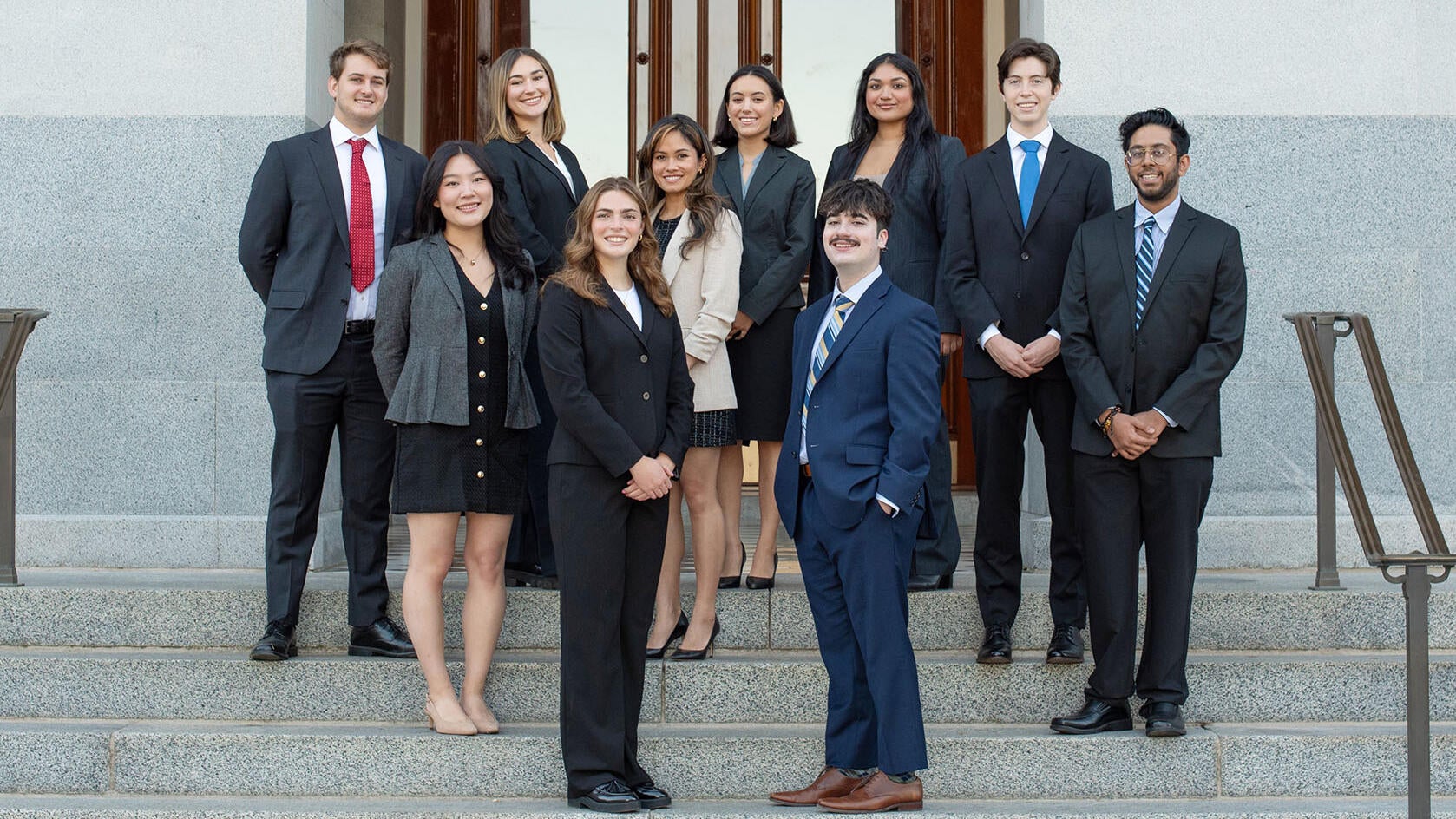
California Courts and Judicial Council Inspire New Generation of Court Leaders
After earning a bachelor’s degree in Political Science from UCLA, Kristina Mooney experienced two new things after graduation: working in a state court (San Bernardino Superior Court) and living in the Inland Empire, a departure from her hometown in the San Francisco Bay Area and her college residence in Los Angeles.
Up in the northern part of the state, Kolby Minckler also took on a new challenge both professionally and geographically after earning his bachelor's degree in History from the University of South Carolina: moving from his home state of South Carolina to work in the Sacramento Superior Court.
Getting a Behind-the-Scenes Look into the Justice System
This past June, both Mooney and Minckler completed their 10-month assignments as part of the Judicial Fellowship program, which offers real-world work experience and training from judicial leaders to inspire career pathways in California courts.
“The exposure I’ve gotten here in the courts is unlike anything I could get in any sort of professional development program," said Mooney. “I’ve observed every case type and learned about collaborative courts. I think years ago, it might have scared me to get into something like criminal law because the kinds of things you see in those courtrooms can be really hard, but I think it’s important to be aware of those things and see how justice works.”
“What I knew about the courts were that attorneys argue in the courtroom and there’s a judge that decides matters,” said Minckler. “But there are so many other careers for people who want to work in the courts, and I was interested in exploring this whole different side of court administration and how a court actually runs outside of the courtroom.”
California Program Provides Preview of Careers in the Judicial Branch
Running from September to June each year, the full-time paid judicial fellowship is co-administered by the Judicial Council and Sacramento State University’s Center for California Studies, which also offers fellowships in the state’s executive and legislative branches as part of the Capital Fellows program. Judicial Fellows work in superior courts and Judicial Council offices across California on initiatives related to court programs, public policy, legislative analysis, language access, and community outreach. Each fellow is mentored by court executive officers and senior court and council staff.
Judicial Fellows participate in monthly graduate-level field and academic seminars. The rigorous academic seminar follows the structure and function of high-level graduate coursework. Upon successful completion of the fellowship, fellows earn six units of graduate credit in Public Policy and Administration and a graduate certificate in Applied Policy and Government.
“I actually wrote my spring term paper on homeless court, which we call shelter court here in San Bernardino County,” added Mooney. “That program was one of the most beautiful and impactful things I’ve had the honor to see. I didn’t know before this fellowship how courts and access to justice can uplift people. In collaborative courts, and specifically shelter court, I feel like I’m watching the judge literally change people’s lives.”
Minckler also focused on collaborative courts during his fellowship, helping to prep and attend felony Mental Health Treatment Court calendars. “It’s a fantastic opportunity to navigate the criminal justice system in a way that may be much more beneficial to [felony participants] than jail time,” he said. "But I also have come to see that it’s really up to the participants to make the most out of the resources that we offer. I’ve seen people turn their lives around, and they are completely different people by the end of these programs.”
Judicial Fellows Placed at Locations Around the State
For the 2024-2025 school year, seven fellows worked at courts in the counties of Alameda, Butte, Los Angeles, Riverside, Sacramento, San Bernardino, and San Mateo. Instead of actual court assignments, three fellows worked at the Judicial Council, gaining experience in statewide policy issues related to criminal justice, pretrial programs, governmental affairs, and court statistics and data.
Check back in September 2025 for the 2026-2027 fellows application.